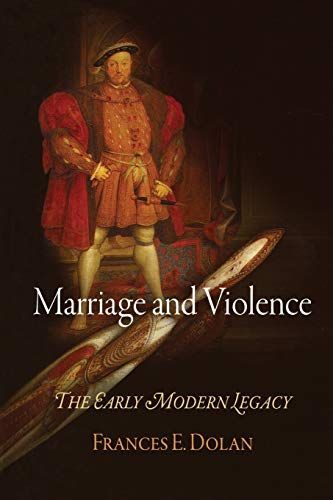
Marriage and Violence The Early Modern Legacy
Marriage is often described as a melding of two people into one. But what—or who—must be lost, fragmented, or buried in that process? We have inherited a model of marriage so flawed, Frances E. Dolan contends, that its logical consequence is conflict. Dolan ranges over sixteenth- and seventeenth-century Puritan advice literature, sensational accounts of "true crime," and late twentieth-century marriage manuals and films about battered women who kill their abusers. She reads the inevitable Taming of the Shrew against William Byrd's diary of life on his Virginia plantation, Noel Coward's Private Lives, and Barbara Ehrenreich's assessment in Nickel and Dimed of the relationship between marriage and housework. She traces the connections between Phillippa Gregory's best-selling novel The Other Boleyn Girl and documents about Anne Boleyn's fatal marriage and her daughter Elizabeth I's much-debated virginity. By contrasting depictions of marriage in the sixteenth and seventeenth centuries and our own time, she shows that the early modern apprehension of marriage as an economy of scarcity continues to haunt the present in the form of a conceptual structure that can accommodate only one fully developed person. When two fractious individuals assert their conflicting wills, resolution can be achieved only when one spouse absorbs, subordinates, or eliminates the other. In an era when marriage remains hotly contested, this book draws our attention to one of the histories that bears on the present, a history in which marriage promises both intimate connection and fierce conflict, both companionship and competition.